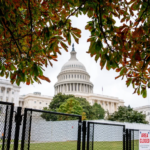Chancellor Rachel Reeves has declared that tax hikes are necessary to restore fiscal and economic stability in the UK, emphasizing that such measures are crucial for encouraging investment. Speaking at a government investment summit earlier this week, Reeves highlighted the importance of stability as a precursor to business confidence, stating that businesses recognize the need for these adjustments to “balance the books.”
While the Labour Party has pledged not to raise key taxes affecting working individuals, such as income tax, VAT, and personal national insurance contributions, it has left open the possibility of increasing employers’ national insurance contributions, capital gains tax (CGT), and taxes on the gambling sector. The rumored changes have already raised concerns in various industries, notably among UK-based bookmakers, whose shares fell amid speculation of potential tax increases amounting to £3 billion in the upcoming budget.
Prime Minister Sir Keir Starmer has attempted to ease concerns, dismissing speculation that CGT could rise to 39% as “wide of the mark.” However, he confirmed that tax increases would be part of the plan to restore the UK’s economic footing. This comes amid criticism from the business community regarding Labour’s approach to the economic challenges inherited from the previous Conservative government, including a reported £22 billion fiscal deficit that necessitates “difficult decisions.”
Reeves may consider several tax changes in the Autumn Budget 2024:
- Employers’ National Insurance Contributions: One potential measure is a rise in employers’ national insurance contributions (NICs). Labour has ruled out increasing NICs for employees, but officials suggest raising employers’ contributions could enhance Treasury revenue without directly affecting workers. A one-percentage-point increase could generate approximately £8.9 billion annually, although businesses facing inflation and rising interest rates may resist this change.
- Capital Gains Tax: There is speculation about increasing CGT rates, currently set at 10% for basic-rate taxpayers and 20% for higher-rate taxpayers. Starmer has downplayed the likelihood of a 39% increase, but aligning CGT with income tax rates could raise significant revenue and potentially deter investment in sectors reliant on capital.
- Non-Domiciled Tax Status: The non-domiciled tax status, which exempts foreign-earned income from UK taxation, is also under review. Critics argue it allows the wealthy to avoid taxes, but changes could risk deterring high-net-worth individuals and businesses from the UK.
- Income Tax Thresholds: While Reeves is unlikely to raise income tax rates, she may lower the thresholds for existing bands. This change could bring more individuals into higher tax brackets without formally increasing rates, potentially generating £10 billion and £6 billion in additional revenue.
- Pensions and Inheritance Tax: Reeves is expected to avoid cutting tax relief on pension savings to protect public sector workers. However, reforms to inheritance tax, particularly by removing exemptions for business and agricultural assets, could raise around £2 billion annually.
- Fuel Duty and Private Equity Taxes: Increasing fuel duty, which has remained frozen since 2011, could provide a £6 billion revenue boost. Additionally, adjusting the taxation of private equity profits could yield another £2 billion, but may lead to behavioral changes affecting overall tax revenue.
- Gambling Taxes: Reports of potential increases in gambling taxes have already unsettled the markets, with Labour viewing this sector as a significant revenue source.
As Chancellor Reeves navigates these complex issues, the focus remains on achieving a balanced approach that fosters economic recovery while addressing the pressing fiscal challenges ahead.









